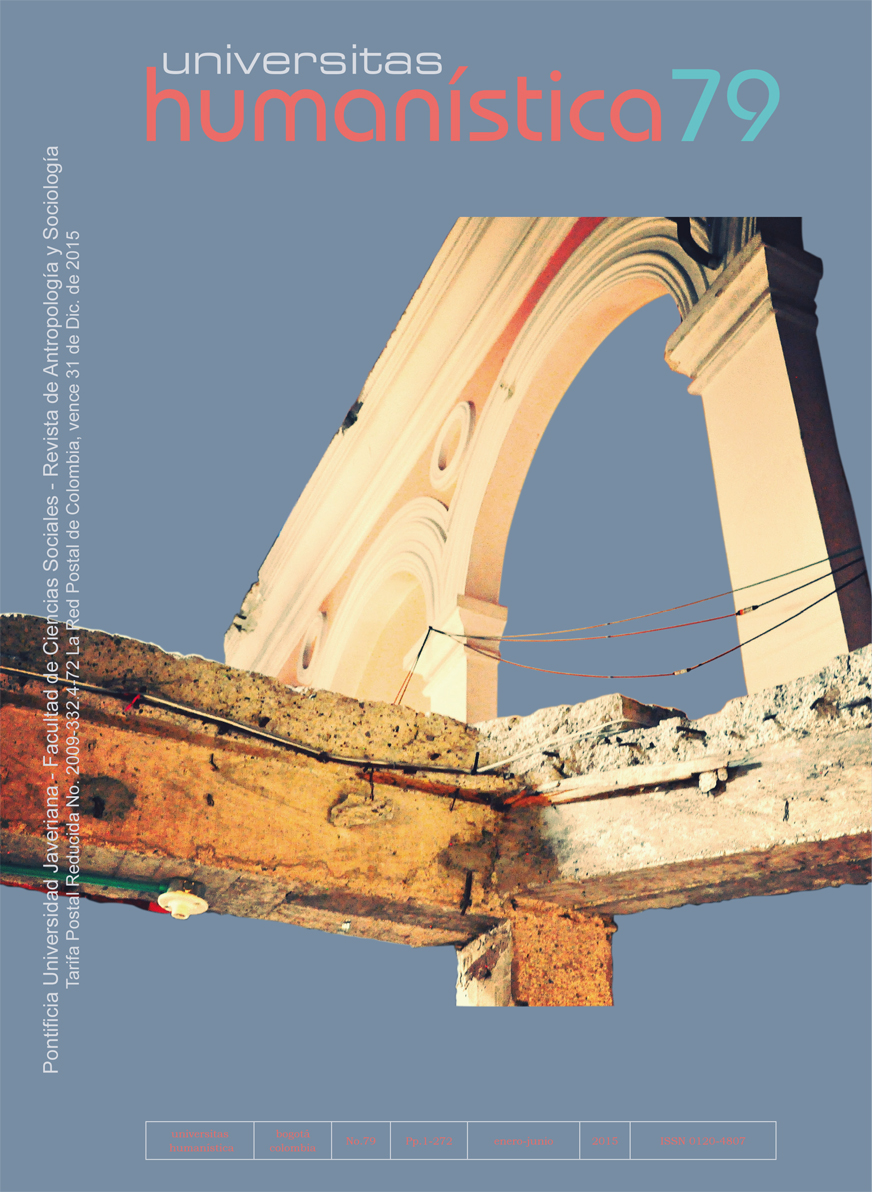Resumen
Indagué por los modos en que se materializa la hegemonía euroreferenciada contenida en la expresión tercer mundo, utilizando una reformulación de la metodología del análisis narrativo de narrativas. Para ello, realicé entrevistas focalizadas sobre la base de un muestreo intencional estructural. El marco teórico/conceptual está establecido en torno a la definición de sistema mundo moderno/colonial y la estructuración del patrón de dominación colonial sobre los dispositivos de clasificación y jerarquización derivados de las categorías raza, género, sexualidad y clase. Los resultados se presentan bajo la forma de una narrativa estructurada en relación a las narrativas trabajadas y el marco conceptual empleado. Allí se presenta cómo en las narrativas se devela el dispositivo tercer mundo como una expresión de la hegemonía instaurada en la modernidad-colonialidad, a través del cual este sistema se expresa y se reproduce interviniendo en la asignación de privilegios y exclusiones. Los trazos de la modernidad-colonialidad están presentes en las narrativas analizadas haciendo visible el patrón por medio del cual el sistema se reproduce manteniendo una hegemonía euroreferenciada. 
La revista Universitas Humanística se encuentra registrada bajo la licencia Creative Commons Reconocimiento 4.0 Internacional. Por lo tanto, esta obra se puede reproducir, distribuir y comunicar públicamente en formato digital, siempre que se reconozca el nombre de los autores y a la Pontificia Universidad Javeriana. Se permite citar, adaptar, transformar, autoarchivar, republicar y crear a partir del material, para cualquier finalidad (incluso comercial), siempre que se reconozca adecuadamente la autoría, se proporcione un enlace a la obra original y se indique si se han realizado cambios. La Pontificia Universidad Javeriana no retiene los derechos sobre las obras publicadas y los contenidos son responsabilidad exclusiva de los autores, quienes conservan sus derechos morales, intelectuales, de privacidad y publicidad.
El aval sobre la intervención de la obra (revisión, corrección de estilo, traducción, diagramación) y su posterior divulgación se otorga mediante una licencia de uso y no a través de una cesión de derechos, lo que representa que la revista y la Pontificia Universidad Javeriana se eximen de cualquier responsabilidad que se pueda derivar de una mala práctica ética por parte de los autores. En consecuencia de la protección brindada por la licencia de uso, la revista no se encuentra en la obligación de publicar retractaciones o modificar la información ya publicada, a no ser que la errata surja del proceso de gestión editorial. La publicación de contenidos en esta revista no representa regalías para los contribuyentes.


